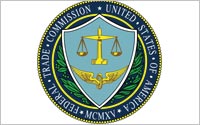 A planned expansion of available domain names could result in a proliferation of phishing scams, the Federal Trade Commission warns in a letter to the Internet Corporation
for Assigned Names and Numbers.
A planned expansion of available domain names could result in a proliferation of phishing scams, the Federal Trade Commission warns in a letter to the Internet Corporation
for Assigned Names and Numbers.
The regulators are urging ICANN to slow down its controversial plan to allow any word -- brand names as well as generic terms -- to serve as top-level domains.
A top-level domain is the letters to the right of the last dot in the URL, like “.com” or “.edu.”
ICANN currently intends to accept applications for new top-level
domains between Jan. 12 and April 12. Registering a new top-level domain will cost at least $185,000, and operating it will cost $25,000 a year.
The FTC says in its 15-page letter that the
“rapid, exponential expansion” of global top-level domains “has the potential to magnify both the abuse of the domain name system and the corresponding challenges we encounter in
tracking down Internet fraudsters.”
advertisement
advertisement
The agency specifically warns that scammers will be able to register misspellings of banks in order to trick consumers into entering their personal
data. “The potential for consumer confusion in other variations of these types of scams is significant,” the FTC says.
As an example, 'ABC bank' could be registered in .com, but
another entity could register 'ABC' in a new .bank gTLD, and a different entity could register “ABC” in a new .finance gTLD. Scam artists could easily take advantage of this potential for
confusion to defraud consumers.”
ICANN has said that it expects up to 1,500 applications next year for new top-level domains, and that it will allow up to 1,000 new top-level domains in
any one year. The FTC is asking ICANN to revise that figure downward to “a more reasonable limit.” While the FTC doesn't propose an exact figure, it says that “doubling the number of
existing gTLDs in one year would be an aggressive increase.”
Lawmakers also recently urged ICANN to move cautiously.
Despite the pleas to scale
back the plan, an ICANN representative told Online Media Daily on Monday that the organization intends to proceed with the rollout next month. ICANN President and CEO Rod Beckstrom also
stated that the organization will “work cooperatively with the FTC and all stakeholders on matters of consumer protection.”
Beckstrom added that ICANN “will monitor the
implementation and take corrective actions as necessary in the face of unanticipated harms."